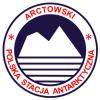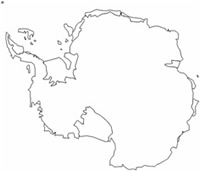About the Project
The coastline and the islands of the Western Antarctic Peninsula represent key areas immediately and most visibly affected by glacial retreat and melting, due to global climate warming. Although it is clear that coastal fresh water and sediment transport have increased both in length and volume, it is not clear how the sub-glacial and land run-off dynamics will change over time.
IMCOAST combines different physico-hydrographical, sedimentological, geochemical and biological proxies to investigate past, ongoing and future climate related changes of land ice masses and sedimentary run-off and their effects on coastal benthic and pelagic ecosystems in the King George Island coastal area.
This international research programme features a multidisciplinary approach involving geo- and biological sciences, field investigations, remote sensing and modelling, as well as knowledge into the hydrographical and biological history of the marine coastal ecosystems of the Western Antarctic Peninsula region.
Objectives
- To quantify variability and changes in fresh water budgets in coastal ecosystems and to provide the physical boundary conditions for geochemical, sedimentological and biophysical research
- Understand the effect of glacial retreat on sub-glacial and land run-off dynamics at in the past and present
- Analyze the effects of the current climate change on coastal pelagic ecosystems
- Analyze carbon recycling in the sediment surface of coastal systems with and without impact of sedimentation, and the bentho-pelagic coupling in KGI coastal food webs
- Evaluate impact and strength of late Holocene warm phases on the KGI coastal system
Field work is carried out in collaboration with the Instituto Antártico Argentino (IAA), the Alfred Wegener Institute for Polar and Marine Research (AWI) and the Department of Antarctic Biology of the Polish Academy of Science
 |
 |
 |
Check out the actual weather conditions at Potter Cove with the Carlini Station web cam.

News
26/07/2012 - IMCOAST publication featured on EarthEmphasis
The recently published IMCOAST publication by Schloss et al (JMS 92, p 53–66) is now featured on the webpage of EarthEmphasis.
[read more]06/06/2012 - Four new IMCOAST publications
Within the past two weeks, four new IMCOAST publications were published (Nehrke et al., Pasotti et al.) and accepted (Torre et al., Bers et al.).
[read more]
